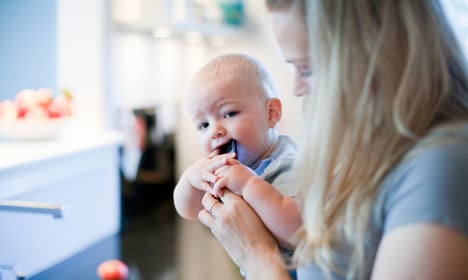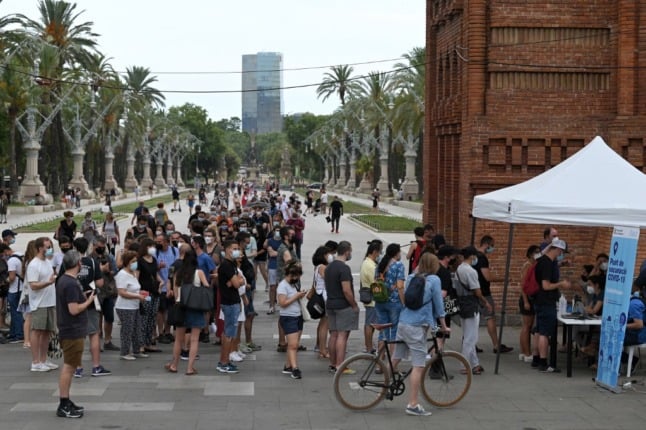DISEASE
Sceptical Danish parents increase measles risk
With every fifth Danish parent choosing not to vaccinate their children, Denmark will fall short of WHO goals and 'undoubtedly' suffer an epidemic, health officials warn.
Published: 7 February 2015 09:23 CET

Recent years have seen more and more Danish parents opt out of childhood vaccinations. Photo: Colourbox
Due to sceptical parents, Denmark will not live up to the World Health Organization’s target of eliminating measles this year, Politiken wrote on Saturday.
Just over eight out of every ten Danish children receive the measles, mumps, and rubella (MMR) vaccine that is recommended by Danish health officials, according to figures from the Danish State Serum Institute (SSI).
That figure puts Denmark significantly below fellow Scandinavian countries Sweden and Norway and means that the nation will not be able to meet the WHO’s objective of eliminating measles as a childhood disease in Europe.
To hit the WHO target, 95 percent of children need to be vaccinated.
“We unfortunately will not live up to the WHO’s goals. That will contribute to the continued spread of infectious disease in Denmark,” SSI spokesman Palle Valentiner-Branth told Politiken.
SSI said that growing scepticism about vaccines and their side effects among parents is the direct reason that Denmark will not hit its measles elimination goal.
“The MMR vaccine was introduced in 1987 and in the years between 2002 and 2005 we had almost fully eliminated one of the major childhood diseases – measles – from Denmark. But now we have a real problem because so many parents don’t get their children vaccinated,” Valentiner-Branth told Politiken.
A large number of Danish parents doubt the safety and necessity of childhood vaccines, and many claim that the vaccines can lead to serious side effects. These parents have thriving communities on social media, where they share information and concerns about the vaccines.
But Allan Randrup Thomsen, a virology professor at the University of Copenhagen, cautioned strongly against basing vaccination decisions on what can be found online.
“On the net, you can find proof of anything. Also in principle that the world is flat,” he told Politiken.
Speaking to Berlingske, Thomsen called parents’ refusal to vaccinate their children “shocking”.
“The development is a ticking time bomb because we have a situation in which a rather large percentage of the population is not vaccinating their children. That means that the Danish population includes more and more individuals who grow up without immunity to measles. When measles get introduced to Denmark at some point, which undeniably will happen, we can have serious epidemics,” he said.
To hit the WHO goals, just five or six Danes can be diagnosed with measles. Denmark has hit that goal just eight times since 1994. In 2014, 27 Danes were diagnosed with measles. The number topped at 84 in 2011.
Germany is also unlikely to live up to the WHO goals due largely to a major measles outbreak in Berlin, where 375 people have been infected with measles since the beginning of October.
Url copied to clipboard!


 Please whitelist us to continue reading.
Please whitelist us to continue reading.
Member comments